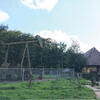Gas, Oil and Heritage
Well-oiled Histories and Corporate Sponsorship in Dutch Museums (1990-2021)
DOI:
https://doi.org/10.51769/bmgn-lchr.7028Keywords:
Corporate Social Responsibility, Shell, Philanthropy, Museums, Heritage PoliticsAbstract
This article was first published as online first on the website of BMGN – LCHR on 2 September 2021. You can find this version here, https://bmgn-lchr.nl/article/view/7028/online-first. This second version published in BMGN 137:1 has been updated and revised, see the enclosed corrigendum. The online first article provoked a reply by Ad Maas, to be consulted here https://doi.org/10.51769/bmgn-lchr.11658, and the authors' response here, https://doi.org/10.51769/bmgn-lchr.11667.
How does corporate sponsorship shape the narration and curation of Dutch history in public museums? This article evaluates the significance and impact of private funding in the Dutch heritage and museum sector. By focusing on three museums that have received funding from Dutch oil and gas companies we foreground specifically the nexus heritage, oil, and funding. We show how a particular type of ‘energy literacy’ is promoted, a narrative that is favourable to the agenda of the gas and oil sector. Our explorations are based on interviews with museum officials, an analysis of policy documents, and a close reading of exhibitions. By describing the impact of oil and gas money on the Dutch heritage sector, this article charts the growing influence of corporate players in the Dutch public cultural sector. Following neoliberal reforms in 2011-2012 promoting cultural entrepreneurship and self-sufficiency, museums and heritage sites had to act even more like businesses and attract sponsorships and gifts from private players. This development is part of a global retraction of the state in the public sector. Our discussion of the intricacies of corporate heritage funding in the Netherlands shows that through a fairly limited investment, enterprises acquire disproportionate outreach and influence in the cultural heritage field, an environment that is generally perceived by the public as reliable and independent.
Hoe beïnvloedden private spelers en bedrijven de manier waarop musea de Nederlandse geschiedenis vertellen en presenteren? Dit artikel onderzoekt het belang en de invloed van private financiering in de Nederlandse erfgoed- en museumwereld. We onderzoeken de invloed van de industrie op de publieke erfgoedsector aan de hand van drie musea die in de voorbije decennia geld hebben ontvangen van de Nederlandse olie- en gasindustrie. Dit artikel beschrijft hoe een bepaald ‘energiediscours’ wordt gepromoot in tentoonstellingen, een narratief dat de olie- en gassector in een positief daglicht stelt. De resultaten van dit onderzoek zijn gebaseerd op interviews met medewerkers van musea, een analyse van beleidsdocumenten en een close reading van de tentoonstellingen die worden, of werden, gefinancierd door de industrie. Het artikel brengt de groeiende invloed van private spelers in de Nederlandse cultuursector in kaart door de impact van de olie- en gasindustrie op de Nederlandse erfgoedsector te beschrijven. Het gevolg van neoliberale hervormingen in de periode 2011-2012 is dat cultureel ondernemerschap en financiële onafhankelijkheid worden aangemoedigd, wat er voor zorgt dat het voor musea en erfgoedsites steeds noodzakelijker wordt om zich op te stellen als bedrijven die sponsorcontracten met, en giften van, partners uit de industrie moeten najagen. Deze evolutie is niet eigen aan Nederland en maakt deel uit van een wereldwijde ontwikkeling waarbij de staat zich uit de culturele sector terugtrekt. Onze analyse toont echter dat de unieke financieringsmechanismen voor private spelers in Nederland ervoor zorgen dat bedrijven met een minieme investering een disproportionele zichtbaarheid en invloed verkrijgen in het culturele erfgoedveld, een omgeving die door de bevolking over het algemeen wordt beschouwd als betrouwbaar en onafhankelijk.
Actualiteitsparagraaf
Besmeurd verleden
BMGN-LCHR toont invloed van fossiele industrie op het vertelde verhaal in Nederlandse musea
De Nederlandse olie- en gaswinning zijn in toenemende mate controversieel, niet in de laatste plaats door klimaatverandering en de aardbevingsproblematiek in Groningen. Historici Gertjan Plets en Marin Kuijt onderzochten voor BMGN – Low Countries Historical Review (BMGN-LCHR) het belang en de invloed van bedrijven uit deze sectoren, zoals Shell en de NAM, in de museale sector in Nederland. Zij onderzochten die invloed aan de hand van drie musea die de voorbije decennia geld hebben ontvangen van de Nederlandse olie- en gasindustrie: het Nederlands Openluchtmuseum, het Drents Museum en Rijksmuseum Boerhaave. Hun onderzoek, gebaseerd op interviews met medewerkers van musea, een analyse van beleidsdocumenten en een close reading van tentoonstellingen, laat zien dat de fossiele industrie met relatief kleine investeringen veel inhoudelijke invloed weet te vergaren. Gevolg: de belastingbetaler betaalt in feite mee aan de PR en marketing voor de fossiele economie.
Video
Downloads

Additional Files
Published
Versions
- 2022-03-31 (2)
- 2021-09-02 (1)
Issue
Section
License
Copyright (c) 2021 Gertjan Plets, Marin Kuijt

This work is licensed under a Creative Commons Attribution 4.0 International License.
Authors who publish with this journal agree to the following terms:
a) Authors retain copyright and grant the journal right of first publication with the work simultaneously licensed under a Creative Commons Attribution 4.0 International (CC BY 4.0) that allows others to share the work with an acknowledgement of the work's authorship and initial publication in this journal.
b) Authors are able to enter into separate, additional contractual arrangements for the non-exclusive distribution of the journal's published version of the work (e.g., post it to an institutional repository or publish it in a book), with an acknowledgement of its initial publication in this journal.
c) Authors are permitted to post their work online (e.g., in institutional repositories or on their website) prior to and during the submission process.
Authors are explicitly encouraged to deposit their published article in their institutional repository.








